
Stuttgart: The Heart of German Engineering and Culture
Stuttgart, nestled in the heart of the Baden-Württemberg region, is a vibrant city brimming with history, culture, and innovation. Known as the cradle of the automobile, it is home to the headquarters of both Mercedes-Benz and Porsche, where you can explore fascinating museums dedicated to these iconic brands. Amidst its modernity, Stuttgart proudly showcases its rich heritage through grand palaces, stately buildings, and historic sites. For art and culture enthusiasts, Stuttgart offers an array of museums, galleries, and theaters. The State Gallery houses an impressive collection of artworks, while the Stuttgart Opera is renowned for its world-class performances. Nature lovers will appreciate the city's lush parks and gardens, such as the expansive Schlossgarten and the beautiful Wilhelma Zoo and Botanical Garden, which is one of the largest in Europe. Stuttgart is also celebrated for its wine culture, with vineyards stretching across its hills. The annual Stuttgart Wine Festival is a must-visit event, where you can indulge in local wines and traditional Swabian cuisine. The city's vibrant culinary scene, bustling markets, and charming cafes provide countless opportunities to savor authentic German flavors. Whether you're exploring its historic streets, marveling at its architectural wonders, or enjoying its natural beauty, Stuttgart promises an unforgettable experience for every traveler.
Local tips in Stuttgart
- Purchase a StuttCard for free and discounted entry to many attractions and unlimited travel on public transport.
- Visit the Stuttgart TV Tower for panoramic views of the city and surrounding vineyards.
- Take a stroll through the Killesberg Park, especially during the summer, to enjoy its beautiful gardens and outdoor concerts.
- Plan your visit to coincide with the Cannstatter Volksfest in autumn, one of the largest beer festivals in Germany.
- Use the city's efficient public transport system to easily access surrounding towns and attractions.
Neighbourhoods in Stuttgart
Stuttgart: The Heart of German Engineering and Culture
Stuttgart, nestled in the heart of the Baden-Württemberg region, is a vibrant city brimming with history, culture, and innovation. Known as the cradle of the automobile, it is home to the headquarters of both Mercedes-Benz and Porsche, where you can explore fascinating museums dedicated to these iconic brands. Amidst its modernity, Stuttgart proudly showcases its rich heritage through grand palaces, stately buildings, and historic sites. For art and culture enthusiasts, Stuttgart offers an array of museums, galleries, and theaters. The State Gallery houses an impressive collection of artworks, while the Stuttgart Opera is renowned for its world-class performances. Nature lovers will appreciate the city's lush parks and gardens, such as the expansive Schlossgarten and the beautiful Wilhelma Zoo and Botanical Garden, which is one of the largest in Europe. Stuttgart is also celebrated for its wine culture, with vineyards stretching across its hills. The annual Stuttgart Wine Festival is a must-visit event, where you can indulge in local wines and traditional Swabian cuisine. The city's vibrant culinary scene, bustling markets, and charming cafes provide countless opportunities to savor authentic German flavors. Whether you're exploring its historic streets, marveling at its architectural wonders, or enjoying its natural beauty, Stuttgart promises an unforgettable experience for every traveler.
When is the best time to go to Stuttgart?
Iconic landmarks you can’t miss
Mercedes-Benz Museum
Explore the Mercedes-Benz Museum in Stuttgart, where automotive history meets cutting-edge design in a stunning architectural setting.
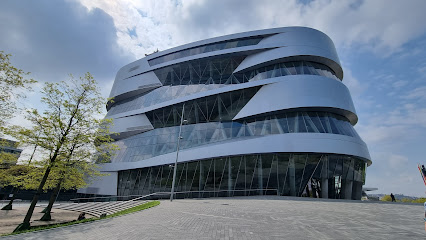
Schlossplatz
Explore Schlossplatz, Stuttgart's historic square, where majestic fountains, stunning architecture, and vibrant cultural life await every visitor.

Stuttgart TV Tower
Experience breathtaking views and rich history at Stuttgart TV Tower, the first concrete TV tower in the world, set against the stunning backdrop of the city.
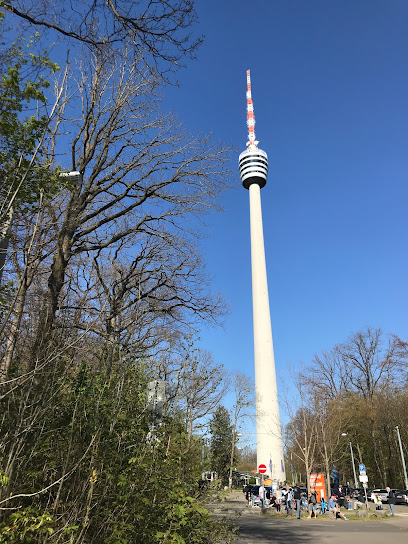
Killesberg Park
Explore Killesberg Park, Stuttgart's serene green space filled with beautiful gardens, recreational activities, and stunning city views.
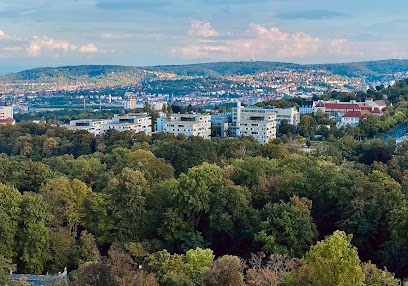
Castle Solitude
Explore the enchanting Castle Solitude in Stuttgart, a Baroque masterpiece offering stunning views, rich history, and beautiful gardens in Germany.
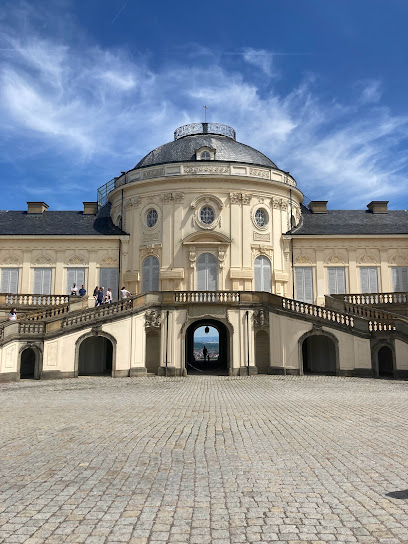
Unterer Schlossgarten
Explore Unterer Schlossgarten, Stuttgart's picturesque city park, a perfect blend of natural beauty and cultural heritage, ideal for relaxation and enjoyment.
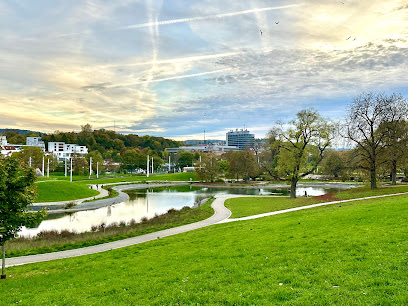
Sepulchral Chapel on Württemberg hill
Explore the Sepulchral Chapel on Württemberg Hill, a historical landmark offering stunning views and a glimpse into Stuttgart's royal heritage.
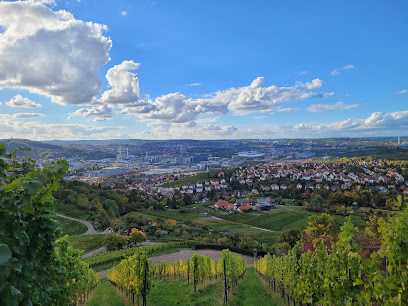
Staatsgalerie Stuttgart
Explore the Staatsgalerie Stuttgart, a premier art museum showcasing masterpieces from various eras and enriching Stuttgart's vibrant cultural landscape.

Middle Palace Garden
Explore the enchanting Middle Palace Garden in Stuttgart, a perfect blend of natural beauty and historical charm, ideal for relaxation and family outings.

Kunstmuseum Stuttgart
Explore the creative spirit of Stuttgart at the Kunstmuseum, a modern art museum showcasing contemporary masterpieces and cultural events.
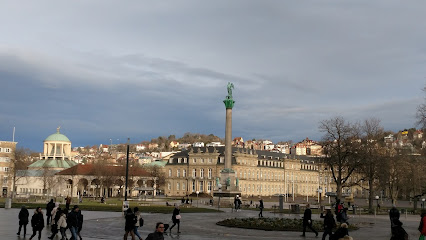
Schillerplatz
Explore Schillerplatz in Stuttgart, where history, culture, and vibrant city life converge in a beautiful historical square.
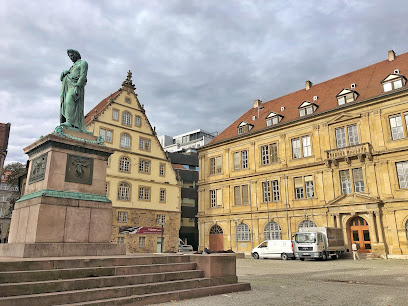
Karlshöhe
Explore the lush greenery and stunning views at Karlshöhe Park, a serene retreat in Stuttgart that beckons nature lovers and urban explorers alike.
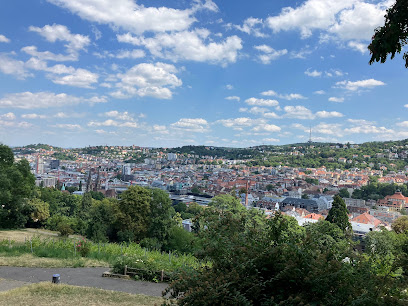
Naturkundemuseum Stuttgart, Schloss Rosenstein
Discover the natural world at Naturkundemuseum Stuttgart, where history, science, and nature come together in a stunning castle setting.
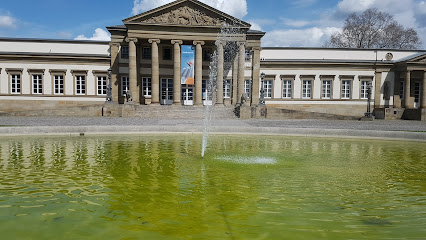
Santiago de Chile Place
Discover breathtaking views and vibrant culture at Santiago de Chile Platz, Stuttgart's premier observation deck for tourists.
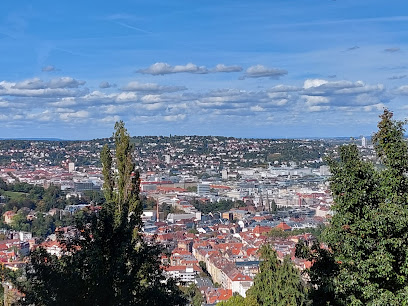
Old Castle
Discover the Old Castle in Stuttgart, a historical gem blending captivating architecture with rich cultural heritage.
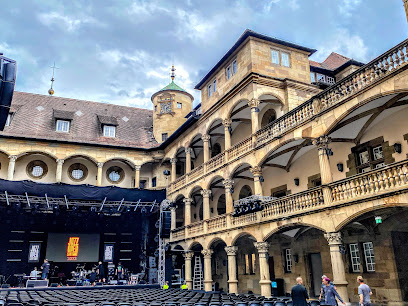
Unmissable attractions to see
Mercedes-Benz Museum
Experience over 135 years of automotive history at the Mercedes-Benz Museum in Stuttgart, showcasing iconic vehicles and groundbreaking innovations that shaped the world of transportation.
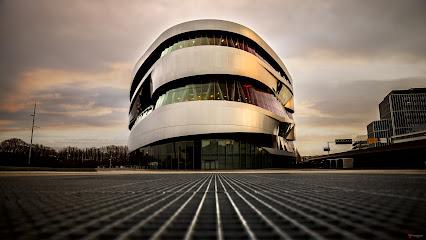
Schlossplatz
Experience the grandeur of Stuttgart at Schlossplatz, a historic square where baroque architecture meets modern vibrancy, offering year-round events and cultural attractions in the heart of the city.
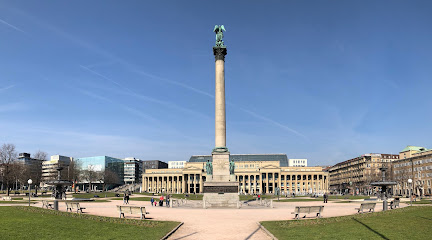
Wilhelma
Discover Wilhelma in Stuttgart: A unique zoological-botanical garden blending Moorish architecture with diverse animal and plant species for an unforgettable experience.
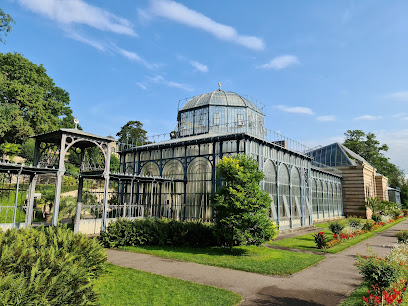
Porsche Museum
Experience the legacy of Porsche at the Porsche Museum in Stuttgart, showcasing iconic sports cars and the brand's evolution through interactive exhibits and stunning architecture.
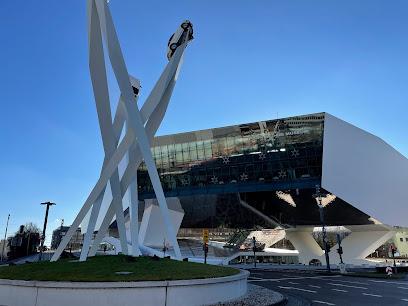
Stuttgart TV Tower
Ascend to Stuttgart's iconic TV Tower for panoramic views and a taste of history, where innovation meets breathtaking scenery in a landmark of architectural brilliance.
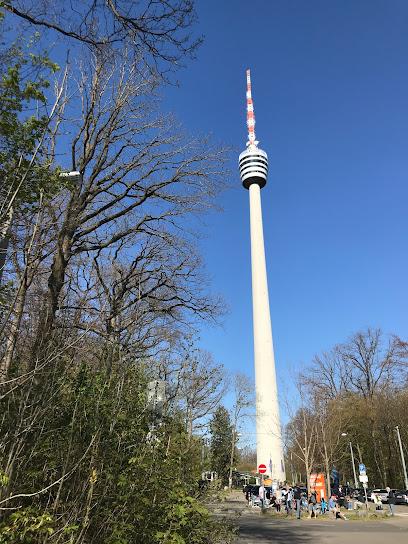
Schloss Lichtenstein
Discover Schloss Lichtenstein, a fairytale castle perched in the Swabian Alps, offering history, stunning views, and a glimpse into Germany's Romantic past, perfect for a memorable day trip.
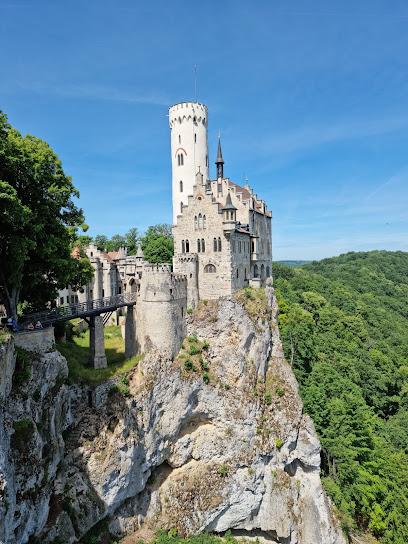
Ludwigsburg Residential Palace
Explore the 'Swabian Versailles': A Baroque palace with opulent state rooms, stunning gardens, and fascinating museums, offering a glimpse into German royalty.
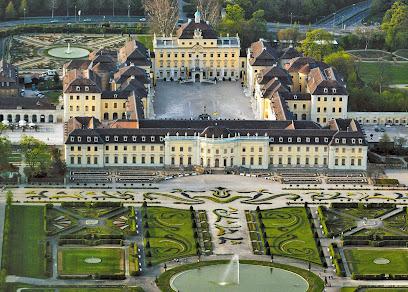
Höhenpark Killesberg
Escape to Stuttgart's Höhenpark Killesberg: Discover vibrant gardens, panoramic views from Killesberg Tower, and the charming Killesberg Railway in this urban oasis.
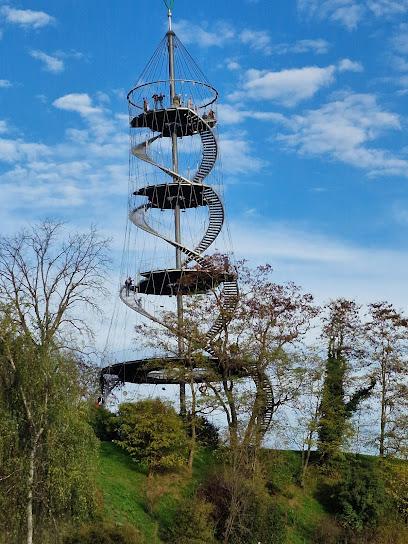
State Museum of Natural History Stuttgart
Explore millions of years of natural history at Stuttgart's State Museum, home to fascinating fossils, diverse ecosystems, and a world of scientific wonders in Rosensteinpark.
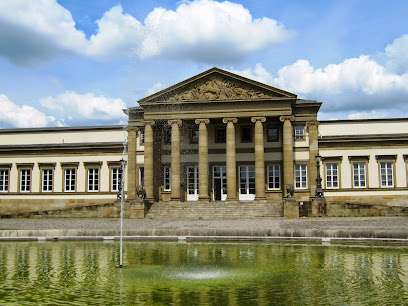
Unterer Schlossgarten
Discover Stuttgart's Unterer Schlossgarten: A historic green oasis offering tranquility, recreation, and a vibrant event calendar in the heart of the city.
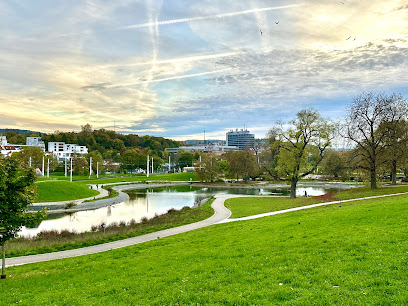
Theaterhaus Stuttgart
Experience Stuttgart's vibrant arts scene at Theaterhaus, a unique venue offering diverse performances from theater and dance to concerts and comedy, all within a repurposed industrial space.
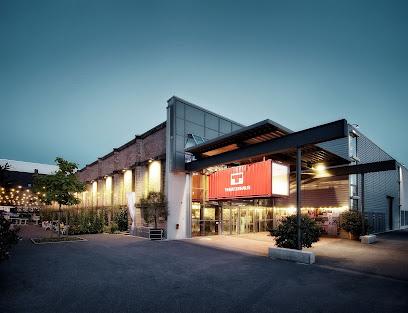
Staatsgalerie Stuttgart
Explore seven centuries of art from Old Masters to modern icons within the striking architecture of Stuttgart's Staatsgalerie, a cultural landmark in the heart of the city.
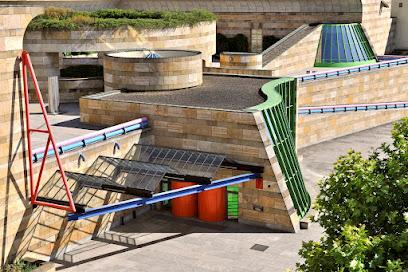
experimenta - Das Science Center
Explore the wonders of science at Experimenta in Heilbronn, Germany, with interactive exhibits, state-of-the-art labs, and a captivating Science Dome for an inspiring and educational experience.
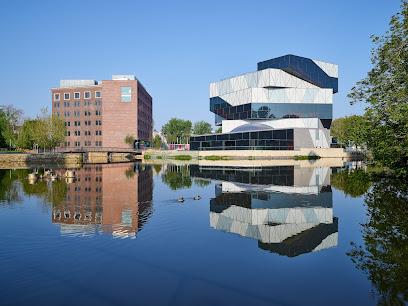
Art Museum Stuttgart
Explore the Art Museum Stuttgart: a captivating destination showcasing modern and contemporary masterpieces in a stunning architectural setting.
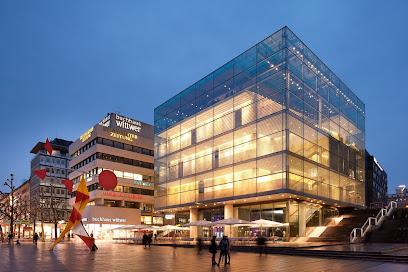
Chinese Garden Stuttgart
Experience the tranquility of a classical Chinese garden in the heart of Stuttgart, offering panoramic city views and a serene escape from the urban bustle.
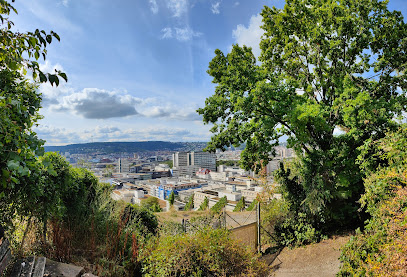
Essential places to dine
Carls Brauhaus
Experience authentic German and Swabian flavors at Carls Brauhaus in Stuttgart's vibrant culinary scene.
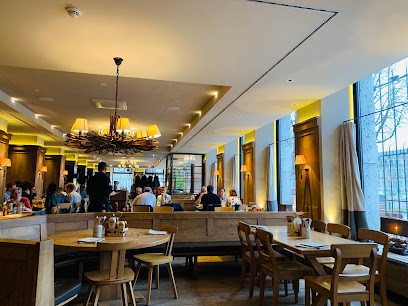
Ochs'n Willi
Experience authentic Swabian cuisine at Ochs'n Willi in Stuttgart-Mitte - where tradition meets taste.
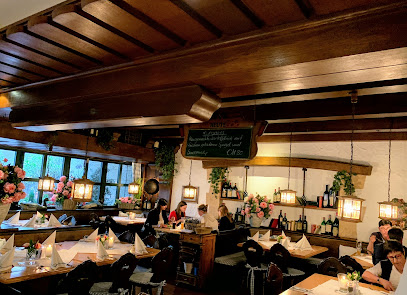
Paulaner am alten Postplatz
Savor traditional German dishes at Paulaner am alten Postplatz – a culinary gem in Stuttgart's vibrant Mitte district.
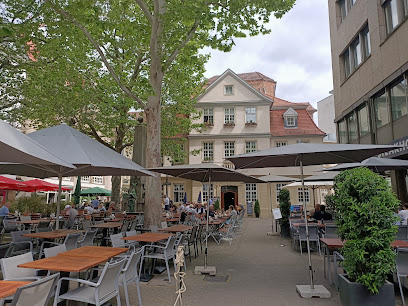
Alte Kanzlei
Experience authentic German and Swabian cuisine at Alte Kanzlei in Stuttgart - where tradition meets taste in every dish.
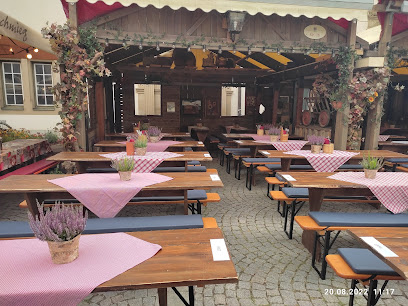
Raman Restaurant
Experience authentic Middle Eastern delights at Raman Restaurant in Stuttgart - where rich flavors meet warm hospitality.
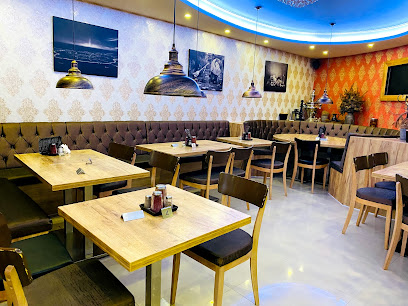
Trollinger Stuttgart
Experience authentic Swabian cuisine at Trollinger Stuttgart with its renowned steaks and inviting beer hall ambiance.
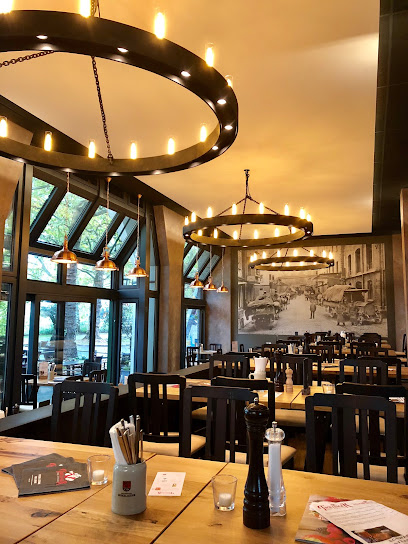
AMADEUS Restaurant & Bar
Discover the flavors of Swabia at AMADEUS Restaurant & Bar in Stuttgart - where tradition meets taste in a delightful dining experience.
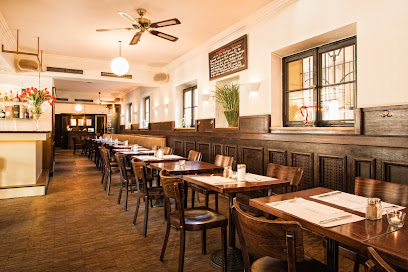
Weinstube Kachelofen
Experience authentic Swabian dishes in Stuttgart's cozy Weinstube Kachelofen – where tradition meets taste in every bite.
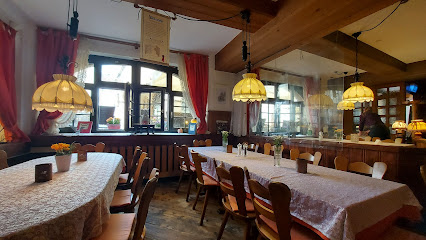
Ambiente Africa
Discover authentic East African flavors at Ambiente Africa in Stuttgart - a culinary journey you won't forget!
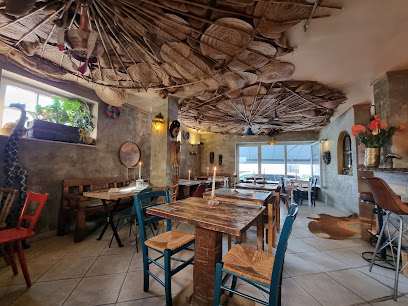
CUBE Restaurant
Experience exquisite dining at CUBE Restaurant in Stuttgart, where modern design meets innovative cuisine amidst breathtaking city views.
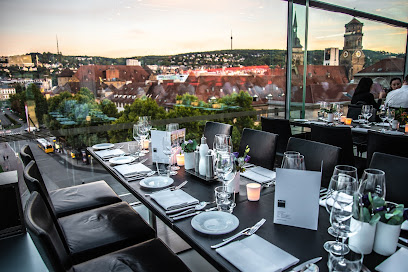
PIER 51 Restaurant & Steakhaus Stuttgart
Discover culinary excellence at PIER 51 Restaurant & Steakhaus Stuttgart - where premium steaks meet fresh seafood in a vibrant setting.
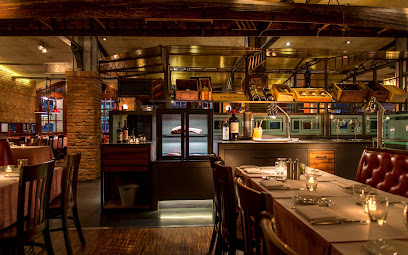
Restaurant zum Ackerbürger - Stuttgart
Experience authentic German cuisine at Restaurant zum Ackerbürger in Stuttgart - where tradition meets modern culinary artistry.
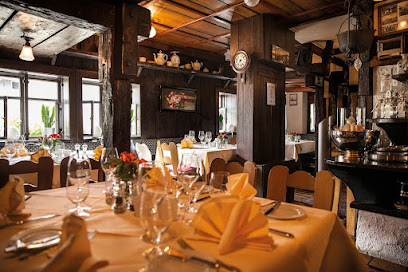
Restaurant Kicho
Experience authentic Japanese cuisine at Restaurant Kicho in Stuttgart - where tradition meets culinary artistry.
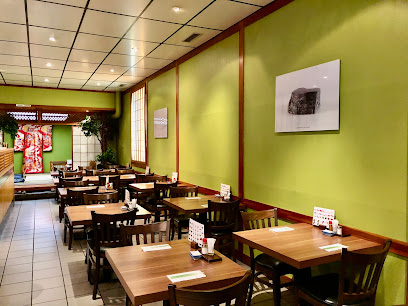
Jose y Josefina
Experience authentic Spanish cuisine at Jose y Josefina in Stuttgart-West - where vibrant flavors meet warm hospitality.
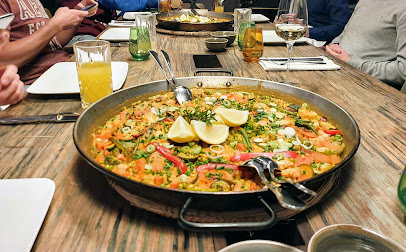
Restaurant Tauberquelle
Experience authentic Swabian cuisine at Restaurant Tauberquelle in Stuttgart's charming atmosphere with delicious food and refreshing local beers.
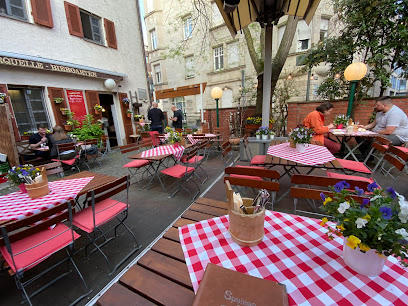
Markets, malls and hidden boutiques
MILANEO Stuttgart
Explore MILANEO Stuttgart, a dynamic shopping mall with diverse stores, delightful dining, and engaging entertainment for the whole family.
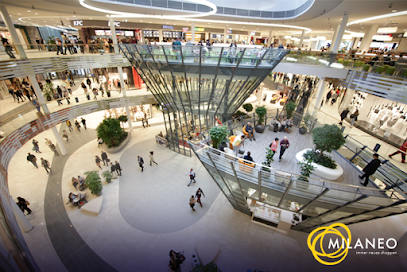
Königsbau Passagen
Discover the charm of Königsbau Passagen, Stuttgart's premier shopping destination blending luxury brands, local gems, and delightful dining experiences.
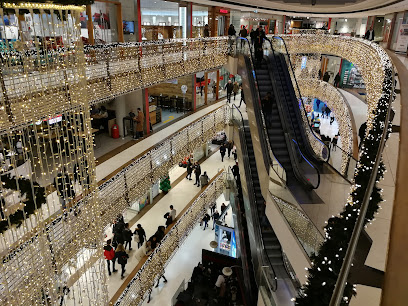
Das Gerber
Explore Das Gerber, Stuttgart's vibrant shopping mall, offering diverse stores, dining, and entertainment in a stylish setting.
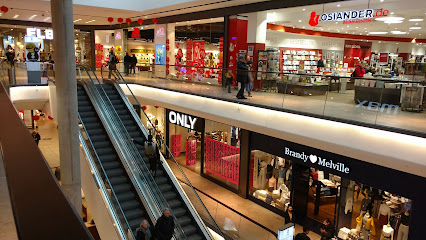
Primark
Discover affordable fashion at Primark Stuttgart, where trendy styles and unbeatable prices await every shopper.
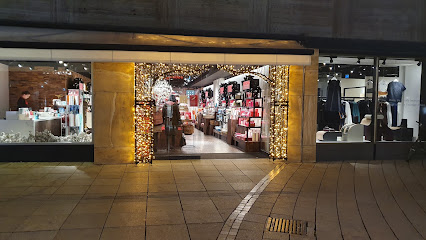
GALERIA Kaufhof
Explore GALERIA Kaufhof in Stuttgart for an unparalleled shopping experience, offering fashion, home goods, and delightful cafes in the city center.
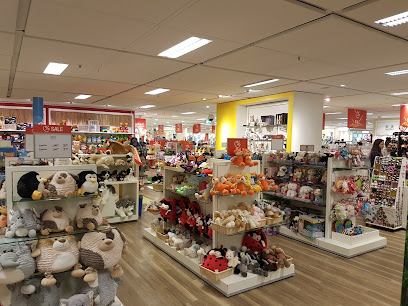
Breuninger Stuttgart
Explore Breuninger Stuttgart for an unrivaled shopping experience featuring top designer brands, luxurious clothing, and chic accessories.
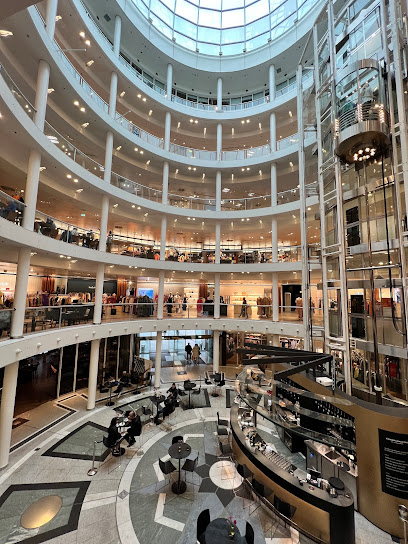
Dorotheen Quartier
Explore the Dorotheen Quartier in Stuttgart, a vibrant shopping mall offering a unique blend of retail, dining, and cultural experiences.
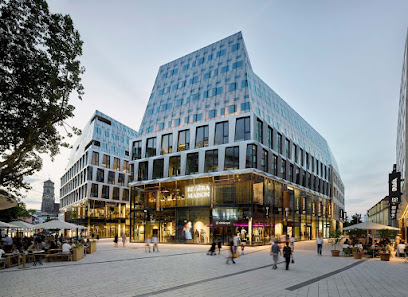
Stuttgart Zentrum
Discover Stuttgart Zentrum: A premier shopping destination in the heart of Stuttgart with diverse shops, eateries, and vibrant atmosphere.
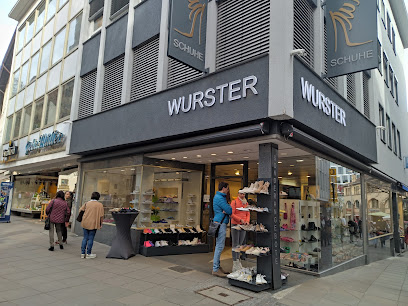
Elbenwald
Explore Elbenwald in Stuttgart: Your ultimate destination for themed gifts, clothing, and collectibles from the realms of fantasy and pop culture.
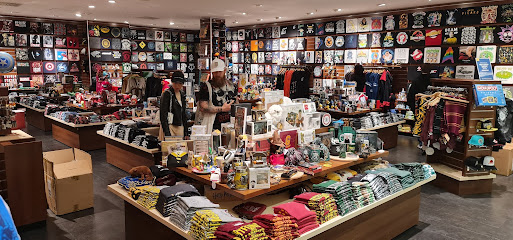
LOUIS VUITTON Stuttgart
Discover the epitome of luxury shopping at Louis Vuitton Stuttgart, featuring exquisite leather goods and fashion accessories in a stunning boutique.
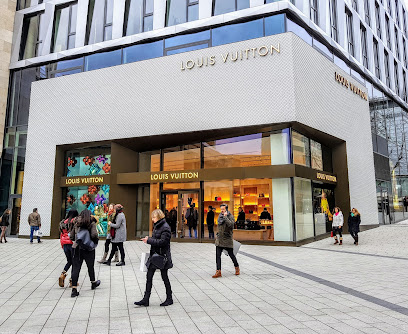
Urban Outfitters
Discover Urban Outfitters in Stuttgart: A trendy haven for unique clothing, home goods, and gifts amidst a vibrant shopping atmosphere.
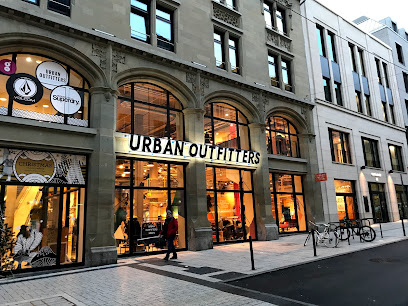
Still Thrifting
Explore Still Thrifting in Stuttgart for unique vintage clothing and a delightful shopping experience that celebrates timeless fashion.
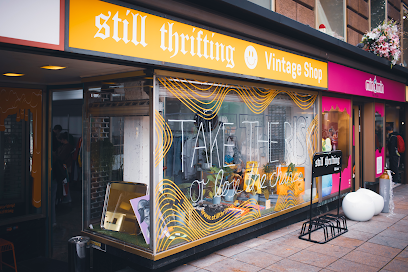
Reserved
Explore the latest fashion trends at Reserved in Stuttgart, a stylish clothing store for men and women in the heart of the city.
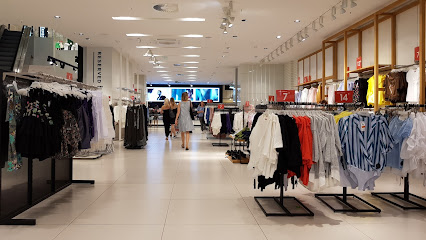
Vintage Markt
Discover unique vintage treasures at Vintage Markt in Stuttgart, where retro fashion meets modern style in a vibrant boutique atmosphere.
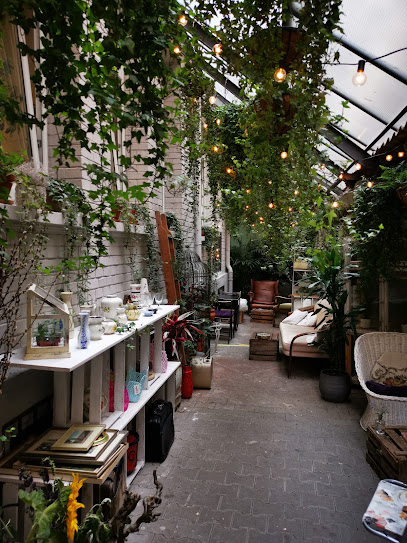
greenality
Explore greenality in Stuttgart for a unique shopping experience with sustainable, stylish fashion that cares for our planet.
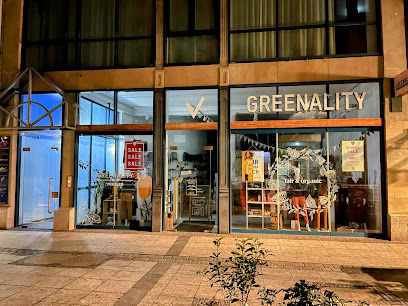
Essential bars & hidden hideouts
Biddy Earlys Irish Pub
Discover the lively atmosphere and authentic Irish experience at Biddy Early's Irish Pub in Stuttgart, where every visit feels like a celebration.
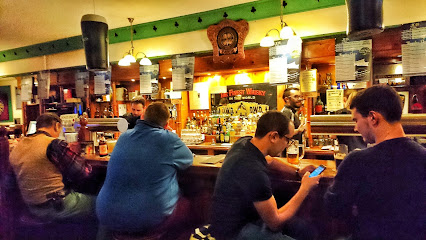
Jigger & Spoon
Discover Stuttgart's cocktail haven at Jigger & Spoon, where expert mixologists craft exquisite drinks in a stylish ambiance.
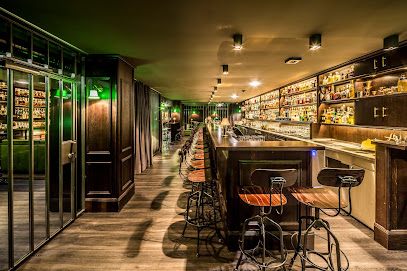
Mata Hari
Experience the vibrant nightlife of Stuttgart at Mata Hari, a lively bar offering an extensive drink menu and an eclectic atmosphere.
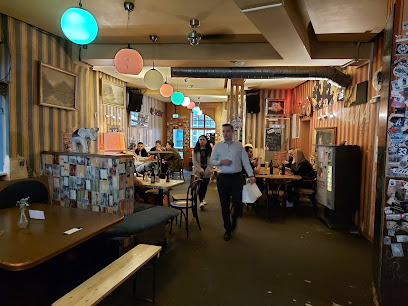
Oblomow - Stuttgart
Discover Oblomow in Stuttgart: A lively pub and bar known for its inviting atmosphere, delicious drinks, and vibrant nightlife.
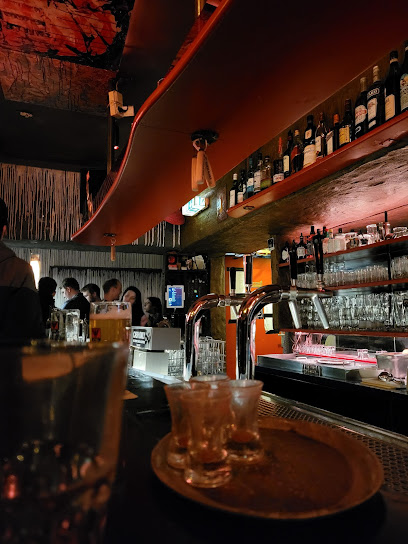
Sky Beach Stuttgart
Experience Stuttgart from above at Sky Beach, a luxurious rooftop bar offering stunning city views and exquisite cocktails in a vibrant atmosphere.
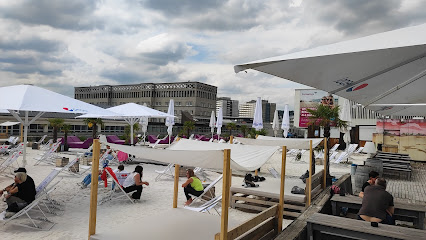
Waranga
Experience the vibrant nightlife at Waranga, Stuttgart's premier bar with an eclectic cocktail menu and a lively atmosphere.
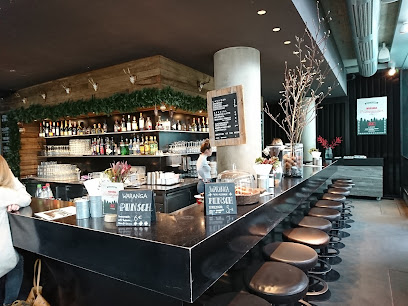
Kap Tormentoso
Experience the vibrant pub culture at Kap Tormentoso in Stuttgart, where local brews and hearty German cuisine await.
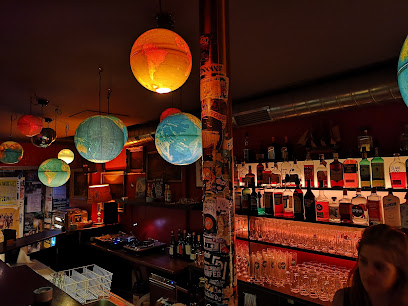
Schwarz Weiß Bar
Discover the vibrant cocktail culture of Stuttgart at Schwarz Weiß Bar, offering unique drinks and a chic atmosphere for a memorable night.
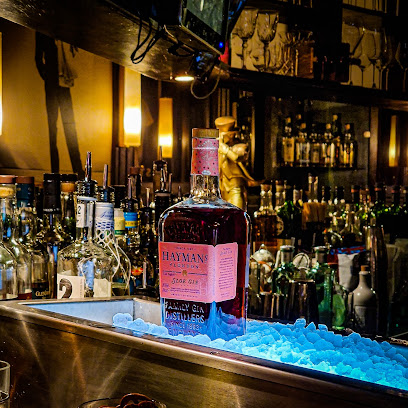
Mos Eisley - Stuttgart
Dive into Stuttgart's nightlife at Mos Eisley, where great drinks and a vibrant atmosphere await every visitor.
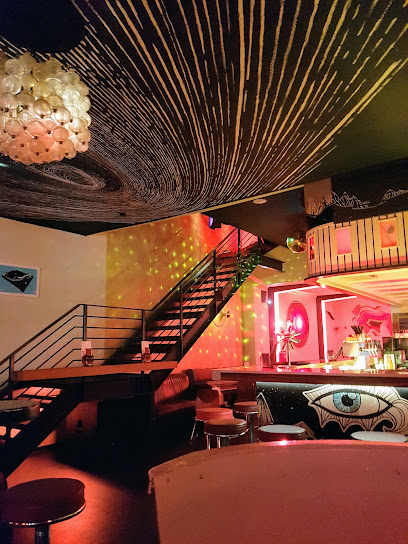
Palast der Republik - Stuttgart
Discover the lively atmosphere and extensive drink selection at Palast der Republik, Stuttgart's premier bar for nightlife enthusiasts.
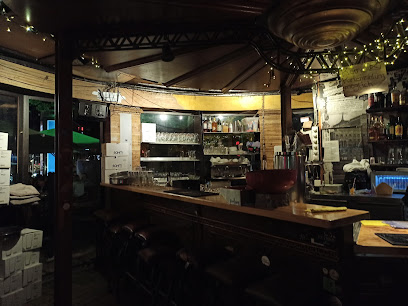
Paul & George - Stuttgart
Discover Stuttgart's nightlife at Paul & George, a premier cocktail bar with creative drinks and an electrifying atmosphere.
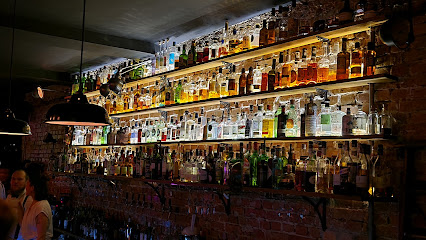
Marshall Matt - Stuttgart
Experience the vibrant nightlife at Marshall Matt, Stuttgart's premier bar offering a diverse drink menu and a lively atmosphere perfect for socializing.
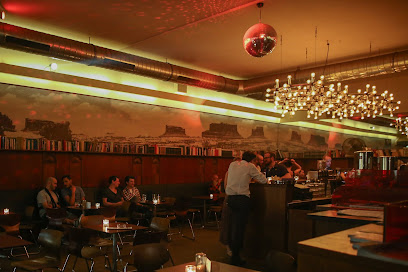
Le petit Coq
Experience the vibrant nightlife of Stuttgart at Le Petit Coq, where innovative cocktails meet a stylish atmosphere for an unforgettable evening.
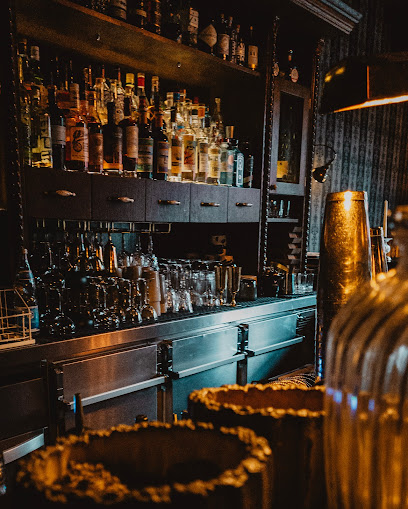
FOU FOU | Cocktail- und Champagnerbar
Discover Stuttgart's premier cocktail and champagne bar, FOU FOU, where luxury meets a vibrant nightlife experience.
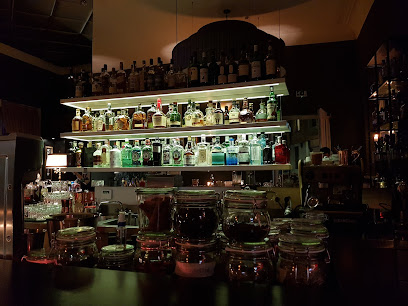
Local Phrases
-
- HelloHallo
[hah-loh] - GoodbyeAuf Wiedersehen
[owf vee-der-zay-en] - YesJa
[yah] - NoNein
[nine] - Please/You're welcomeBitte
[bih-tuh] - Thank youDanke
[dahn-kuh] - Excuse me/SorryEntschuldigung
[ent-shool-dee-goong] - How are you?Wie geht es dir?
[vee gayt es deer] - Fine. And you?Gut. Und dir?
[goot oont deer] - Do you speak English?Sprechen Sie Englisch?
[shpre-khen zee eng-leesh] - I don't understandIch verstehe nicht
[ikh fer-shtay-uh nikht]
- HelloHallo
-
- I'd like to see the menu, pleaseIch möchte die Speisekarte sehen, bitte
[ikh merkhte dee shpy-zuh-kahr-tuh zay-en, bih-tuh] - I don't eat meatIch esse kein Fleisch
[ikh es-suh kine flysh] - Cheers!Prost!
[prohst] - I would like to pay, pleaseIch möchte bitte bezahlen
[ikh merkhte bih-tuh bay-tsah-len]
- I'd like to see the menu, pleaseIch möchte die Speisekarte sehen, bitte
-
- Help!Hilfe!
[hil-fuh] - Go away!Geh weg!
[geh vayg] - Call the Police!Rufen Sie die Polizei!
[roo-fen zee dee po-lee-tsay] - Call a doctor!Rufen Sie einen Arzt!
[roo-fen zee i-nen artsht] - I'm lostIch habe mich verirrt
[ikh hah-buh meesh fuh-ir-t] - I'm illIch bin krank
[ikh bin krank]
- Help!Hilfe!
-
- I'd like to buy...Ich möchte kaufen...
[ikh merkhte kow-fen] - I'm just lookingIch schaue nur
[ikh show-uh noor] - How much is it?Wie viel kostet es?
[vee feel koss-tet es] - That's too expensiveDas ist zu teuer
[dahs ist tsoo toy-er] - Can you lower the price?Können Sie den Preis senken?
[kern-en zee den price zeng-ken]
- I'd like to buy...Ich möchte kaufen...
-
- What time is it?Wie spät ist es?
[vee shpeyt ist es] - It's one o'clockEs ist ein Uhr
[es ist iyn oor] - Half past (10)Halb elf
[halb elf] - MorningMorgen
[mohr-gen] - AfternoonNachmittag
[nahk-mit-tahg] - EveningAbend
[ah-bent] - YesterdayGestern
[ge-shtern] - TodayHeute
[hoi-tuh] - TomorrowMorgen
[mohr-gen] - 1Eins
[iyns] - 2Zwei
[tsvai] - 3Drei
[dry] - 4Vier
[feer] - 5Fünf
[foonf] - 6Sechs
[zeks] - 7Sieben
[zee-ben] - 8Acht
[ahkt] - 9Neun
[noyn] - 10Zehn
[tsayn]
- What time is it?Wie spät ist es?
-
- Where's a/the...?Wo ist ein/der...?
[vo ist iyn/deer] - What's the address?Was ist die Adresse?
[vahs ist dee ah-dres-seh] - Can you show me (on the map)?Können Sie mir (auf der Karte) zeigen?
[kern-en zee meer (owf der kahr-teh) tsay-gen] - When's the next (bus)?Wann kommt der nächste (Bus)?
[vahn kommt der nakh-steh (boos)] - A ticket (to ....)Eine Fahrkarte (nach ...)
[i-ne fahr-kahr-teh (nahkh ...)]
- Where's a/the...?Wo ist ein/der...?
History of Stuttgart
-
Stuttgart was founded in the 10th century by Duke Liudolf of Swabia, who established a stud farm in the area. The city's name is derived from 'Stuotgarten,' meaning 'stud farm.' It rapidly grew due to its strategic location and fertile soil, becoming a significant center for agriculture and trade.
-
During the medieval period, Stuttgart flourished as a market town. It became the residence of the Counts of Württemberg in the 14th century, spurring further development. The construction of the Old Castle and the Collegiate Church of the Holy Cross marked this era of prosperity.
-
The House of Württemberg played a pivotal role in Stuttgart's history. In 1495, Count Eberhard V was elevated to Duke of Württemberg by Emperor Maximilian I, making Stuttgart the duchy's capital. The city witnessed significant architectural and cultural advancements under their rule.
-
In the early 19th century, Stuttgart experienced major changes due to the Napoleonic Wars. The city became the capital of the newly established Kingdom of Württemberg in 1806, leading to modernization efforts such as expanded infrastructure and the founding of educational institutions.
-
The late 19th and early 20th centuries saw Stuttgart transform into an industrial hub. The establishment of companies like Daimler and Bosch turned the city into a center of innovation and automotive engineering, contributing to its economic boom.
-
Stuttgart suffered extensive damage during World War II due to Allied bombings. Post-war reconstruction efforts were monumental, with the city being rebuilt and modernized. The establishment of the Stuttgart Stock Exchange and the hosting of the first German Federal Garden Show in 1950 were significant milestones.
-
The latter half of the 20th century saw a cultural renaissance in Stuttgart. The city became renowned for its contributions to the arts, with institutions like the Stuttgart State Opera and the Stuttgart Ballet gaining international acclaim. The annual Stuttgart Wine Festival also started during this period, celebrating the region's rich viticulture.
-
Today, Stuttgart is a vibrant metropolis that seamlessly blends tradition with innovation. It is home to numerous cultural landmarks such as the Mercedes-Benz Museum and the Porsche Museum, as well as educational institutions like the University of Stuttgart. The city's commitment to sustainability and green initiatives is evident in its extensive parks and green areas.
Stuttgart Essentials
-
Stuttgart can be easily accessed by various means of transportation. Stuttgart Airport (STR) is the primary international gateway, with numerous flights connecting it to major cities worldwide. The airport is about 13 kilometers south of the city center and is well-connected by public transport. High-speed trains (ICE) and regional trains connect Stuttgart to other German cities such as Frankfurt, Munich, and Berlin. Additionally, long-distance buses operate routes to Stuttgart from various European cities.
-
Stuttgart has an efficient and comprehensive public transportation system, including trains (S-Bahn), trams (U-Bahn), and buses. The Verkehrs- und Tarifverbund Stuttgart (VVS) manages the public transport network. Tickets can be purchased at automated machines, online, or via the VVS app. Taxis are readily available, and ride-sharing services like Uber operate in the city. Renting a bicycle or e-scooter is also a popular option for short distances.
-
Germany uses the Euro (EUR) as its currency. Credit and debit cards are widely accepted in Stuttgart, but it is advisable to carry some cash, especially for smaller establishments and markets. ATMs are available throughout the city, and many banks offer currency exchange services. Contactless payments via NFC-enabled cards or smartphones are becoming more common.
-
Stuttgart is generally a safe city for tourists. However, it is advisable to take basic precautions. Areas like the Hauptbahnhof (main train station) and Königstraße can be crowded, so be mindful of pickpockets. Neighborhoods such as Bad Cannstatt and Zuffenhausen have been reported to have higher crime rates, but they are generally safe during the day. Avoid poorly lit and deserted areas at night.
-
In case of emergency, dial 112 for medical, fire, or police assistance. Stuttgart has several hospitals and medical facilities, including the Klinikum Stuttgart which offers emergency services. Pharmacies (Apotheken) are widespread and provide over-the-counter medications. It is recommended to have travel insurance that covers medical emergencies.
-
Fashion: Do dress smart-casual when dining out or attending events. Avoid overly casual clothing like flip-flops in upscale settings. Religion: Do respect religious sites by dressing modestly and being quiet. Public Transport: Do validate your ticket before boarding. Don't eat or drink on public transport. Greetings: Do greet people with a firm handshake and maintain eye contact. Eating & Drinking: Do try local dishes and beverages like Swabian Maultaschen and local wines. Don't forget to say 'Prost!' before taking a sip of your drink.
-
To experience Stuttgart like a local, visit the Markthalle for fresh produce and local delicacies. Take a stroll in the Schlossgarten or Rosensteinpark. Enjoy a beer at a traditional beer garden like the Biergarten im Schlossgarten. Don't miss the Stuttgart Wine Festival if you're visiting in late summer. For a unique experience, ride the Zacke, Stuttgart's historic rack railway, offering scenic views of the city.
Trending Landmark in Stuttgart
-
Mercedes-Benz Museum
-
Schlossplatz
-
Stuttgart TV Tower
-
Killesberg Park
-
Castle Solitude
-
Unterer Schlossgarten
-
Sepulchral Chapel on Württemberg hill
-
Staatsgalerie Stuttgart
-
Middle Palace Garden
-
Kunstmuseum Stuttgart
-
Schillerplatz
-
Karlshöhe
-
Naturkundemuseum Stuttgart, Schloss Rosenstein
-
Santiago de Chile Place
-
Old Castle
Nearby Cities to Stuttgart
-
Things To Do in Heidelberg
-
Things To Do in Rothenburg ob der Tauber
-
Things To Do in Strasbourg
-
Things To Do in Wurzburg
-
Things To Do in Freiburg
-
Things To Do in Bregenz
-
Things To Do in Frankfurt
-
Things To Do in Colmar
-
Things To Do in Nuremberg
-
Things To Do in Dornbirn
-
Things To Do in Zurich
-
Things To Do in Ruggell
-
Things To Do in Schellenberg
-
Things To Do in Mauren
-
Things To Do in Gamprin















